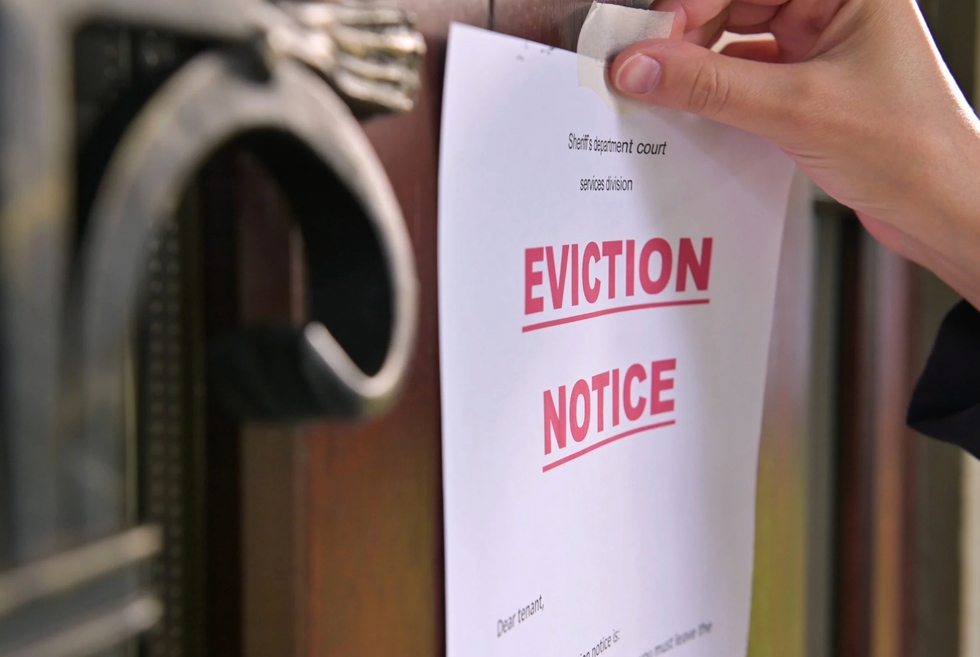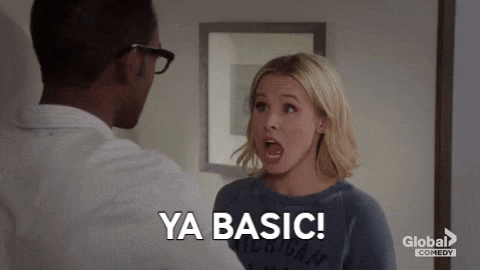Four months into the COVID-19 pandemic, Americans have made up their minds about the president's response and it's not pretty. A Quinnipiac University poll released Wednesday found that 62% of registered voters say Trump is hurting the effort to fight COVID-19.
Meanwhile, 67% of registered voters don't trust the information he shares about the disease.
Maryland's Republican Governor Larry Hogan shared his personal experience dealing with "the man who was supposed to be our leader" in a Washington Post op-ed and it's damning to say the least.
The article recounts how governors across the country essentially gave up on the idea there would be any cogent response from Washington D.C. and decided to go it alone. That accounts for why there was, in Hogan's words, a "patchwork" response to the pandemic.
After realizing that there wouldn't be a reliable response from the federal government, Hogan and other lawyers decided to take things into their own hands.
I'd watched as the president downplayed the outbreak's severity and as the White House failed to issue public warnings, draw up a 50-state strategy, or dispatch medical gear or lifesaving ventilators from the national stockpile to American hospitals. Eventually, it was clear that waiting around for the president to run the nation's response was hopeless; if we delayed any longer, we'd be condemning more of our citizens to suffering and death. So every governor went their own way, which is how the United States ended up with such a patchwork response.
As the number of cases grew, Trump did nothing.
Meanwhile, instead of listening to his own public health experts, the president was talking and tweeting like a man more concerned about boosting the stock market or his reelection plans.
Hogan then describes Trump's disorganized response to the virus.
He avowed, falsely, that "anybody" could get a test, even as my fellow governors were desperately pleading for help on testing. Then he shifted from boasting to blame. "We inherited a very obsolete system" from the Obama administration, he claimed, conveniently ignoring the fact that his own CDC had designed the troubled U.S. testing system and that his own Food and Drug Administration had waited a full month before allowing U.S. hospital labs to develop their own tests.
On March 25, the president was back to bragging again. "We now are doing more testing than anybody by far," including South Korea, whose widespread testing program was being praised around the world.
This was a false claim because South Korea have well over five times more testing per capita.
All the while governors struggled to get tests and equipment, the president stood in their way.
Governors always do the hard work, make the tough decisions and take the political heat. But an undertaking as large as a national testing program required Washington's help. We expected something more than constant heckling from the man who was supposed to be our leader.
Hogan's scramble to acquire tests was successful, securing 500,000 from South Korea. While Hogan's efforts were a success, the president bashed him for it due to his dislike for South Korea.
I thought we might get a congratulatory word from the president. Trump always had a taste for bold gestures — but, apparently, only for bold gestures he could claim. The president spent much of the following Monday's White House briefing criticizing me and dismissing what we had done. "The governor from Maryland didn't really understand" about testing, Trump grumbled. "The governor of Maryland could've called Mike Pence, could've saved a lot of money. . . . I don't think he needed to go to South Korea. I think he needed to get a little knowledge."
While other developed countries are opening up and reporting fewer and fewer infections, the U.S. just hit an all-time seven-day high for its infection rate. As the infections increase, lockdowns continue and deaths rise, Trump's inaction is getting harder to hide.
You can read the entire op-ed at The Washington Post.

















 Tow truck towing a car in its bedCanva
Tow truck towing a car in its bedCanva  Sad woman looks at her phoneCanva
Sad woman looks at her phoneCanva  A group of young people at a house partyCanva
A group of young people at a house partyCanva  Fed-up woman gif
Fed-up woman gif Police show up at a house party
Police show up at a house party 
 A trendy restaurant in the middle of the dayCanva
A trendy restaurant in the middle of the dayCanva A reserved table at a restaurantCanva
A reserved table at a restaurantCanva Gif of Tim Robinson asking "What?' via
Gif of Tim Robinson asking "What?' via 

 An octopus floating in the oceanCanva
An octopus floating in the oceanCanva


 A woman relaxes with a book at homeCanva
A woman relaxes with a book at homeCanva An eviction notice is being attached to a doorCanva
An eviction notice is being attached to a doorCanva Gif of Kristen Bell saying 'Ya basic!' via
Gif of Kristen Bell saying 'Ya basic!' via